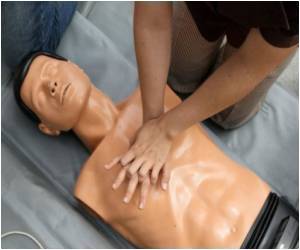A 54-year-old man who collapsed on a recent winter night in rural Minnesota, due to heart attack, would likely have died.

Emergency respondents administered a total of 12 defibrillator shocks and kept the patient's blood flowing with continuous chest compressions. But a key piece of technology on the scene was capnography, which has been used to monitor patients in operating rooms but is not frequently used by emergency personnel when treating cardiac arrest. It measures how much blood is flowing through the lungs, and thereby, to other organs. As the measurement remained sufficiently high, the rescuers were encouraged to continue resuscitation efforts. "A pulse gradually returned," Dr. White says. "The effort was successful in large part because of capnography, which informed emergency workers that if they persisted, it was conceivable they'd have a survivor on their hands."
Once his pulse had resumed, the patient was flown to Saint Marys Hospital (http://www.mayoclinic.org/saintmaryshospital/) in Rochester, Minn., and found to have an occluded artery. A clot was removed and a stent inserted after the artery was opened. He was discharged a week and a half later showing no neurological problems from the extended period without a pulse. Shortly after, he underwent an elective bypass operation to treat his underlying heart disease.
"To our knowledge," Dr. White says, "this episode is the longest duration of pulselessness in an out-of-hospital cardiac arrest that ended with a good outcome. The case suggests further study of advanced life support techniques is warranted, as well as the use of real-time technology like capnography that can validate the efficacy of resuscitation efforts."
Source-Eurekalert










